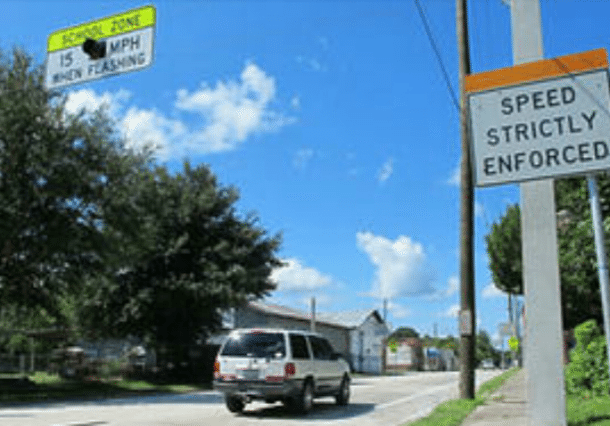You’ve always heard that cops and ticket agents have daily or monthly quotas they must meet. That they must generate a certain amount of cash from the people they’re supposedly “serving.” And you may have found this hard to believe. How can police intentionally go after ordinary citizens, sometimes setting up traffic-traps to force people into breaking the law in order to issue them a ticket?
Meet Waldo Florida.
The north Florida town of Waldo has long had a reputation as a speed trap, and it’s no wonder. A small segment of highway that runs through Waldo requires drivers to speed up and slow down six times: 65 mph becomes 55 mph; 55 becomes 45; then goes back to 55; then back down to 45; to 55 again and eventually, 35 mph.
AAA named the tiny town between Jacksonville and Gainesville one of only two “traffic traps” nationwide and even placed an attention-getting billboard outside the limits of the town to warn drivers to slow down before entering.
Now Waldo faces a scandal following allegations that the town victimizes motorists to turn a profit. Two police chiefs have been suspended, the police department has rebelled and the state is investigating possible wrongdoing.
The situation simmered for years until this month, when Police Chief Mike Szabo was suspended Aug. 12, apparently in response to an investigation by the Florida Department of Law Enforcement into suspected improprieties in the way officers write tickets.
The issue then burst into the open two weeks later at a Waldo City Council meeting, when a group of police officers said they had been ordered by Szabo to write at least 12 tickets per 12-hour shift or face repercussions.
The officers also leveled allegations at the Aug. 26 meeting against Cpl. Kenneth Smith, who had been picked to fill in for Szabo. The officers complained that Smith had, among other things, mishandled evidence. The city council then suspended Smith.
Not surprisingly, things are tense at the tiny stucco storefront office that serves as Waldo City Hall. On Friday morning, Mayor Louie Davis and City Manager Kim Worley met in a small cluttered office to discuss the controversy, slamming a door shut with a “no comment” when a reporter walked in seeking information.








